What is Amazing about
 Rice
Rice
Replacing rice with Broccoli
Sugar will be 1/27
Calories will be 1/5
Good for low carb diet
-
- Calories (kcal)
- Broccoli 37, Indica rice 184
-
- Carbohydrates (g)
- Broccoli 1.5, Indica rice 41.1
- Values per 100g of each
 Cabbage
Cabbage
Dietary fiber: 2.8times
more than cabbage
Vitamin C: 3.4times
more than cabbage
-
- Dietary fiber (g)
- Broccoli 5.1, Cabbage 1.3
-
- Vitamin C (mg)
- Broccoli 140, Cabbage 41
- Values per 100g of each
 Cauliflower
Cauliflower
Vitamin E: 15times
more than cauliflower
Folic acid: 2.3times
more than cauliflower
-
- Vitamin E (mg)
- Broccoli 3.0, Cauliflower 0.2
-
- Folic acid (μg)
- Broccoli 220, Cauliflower 94
- Values per 100g of each
Benefits of broccoli
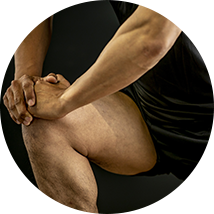
Protein makes bone and muscle:
(5.4g per 100g broccoli) → 1.5 times as much as plain yogurt (3.6g)
Protein is a component that makes up most of the bones, muscles, and organs that form the framework of the human body. It also controls the body's hormones, enzymes, and immune substances.
Protein consists of 20 types of amino acids, but 9 of which are called essential amino acids cannot be synthesized in the body, so they must be taken from food.
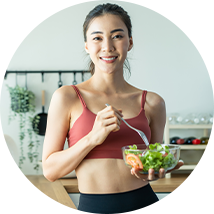
Dietary fiber can help with and prevent constipation
(5.1g per 100g broccoli :0.9g soluble, 4.3g insoluble) → 2.8 times as much as cabbage (1.8g)
Insoluble fiber can help with and prevent constipation. In addition, it can also suppress the rise in blood sugar levels.
Insoluble fiber is also expected to prevent obesity, as it is thought to moderate the digestion and absorption of carbohydrates, thus making meals more filling.
Dietary fiber is a food component that cannot be digested by human digestive enzymes. There are insoluble and soluble dietary fibers, and broccoli contains a large amount of insoluble fiber.
Dietary fiber (carbohydrate)
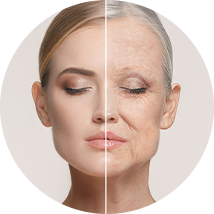
Vitamin E could be called the vitamin of rejuvenation
(3.0mg per 100g broccoli) → 15.0 times as much as cauliflower (0.2mg)
Vitamin E is expected to prevent arteriosclerosis and blood clots, help lower blood pressure, and maintain healthy cell membranes.
It also protects lipids in the body from oxidation and helps maintain healthy cells (it has a strong effect of antioxidant enzymes). For these reasons, it could be called the vitamin of rejuvenation. It is also necessary for boosting the immune system and fighting off bacteria and viruses that invade the body.
Vitamin E (fat-soluble)
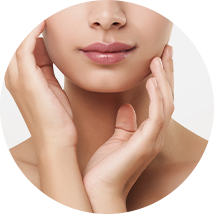
Vitamin C is necessary for the healing of wounds
(140mg per 100g broccoli) → 4.2 times as much as lime juice (33mg)
Vitamin C is an essential nutrient for the synthesis of collagen. It has various roles such as promoting the absorption of iron, strengthening immunity, activating enzymes that metabolize foreign substances that have invaded the body, and preventing heart diseases by its effect of antioxidant enzymes. Collagen is a protein that is necessary for the healing of wounds in various parts of the body such as skin, bones and blood vessels.
Vitamin C is a nutrient that cannot be synthesized in the body, so it must be obtained from food. In addition, since it is eliminated from the body rapidly, it is best to take it frequently through daily meals.
Vitamin C (water-soluble)
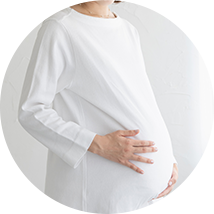
Folic acid is good to taken when pregnancy and after child birth.
(220μg per 100g broccoli) ➡ 10.5 times more than carrots (21μg)
Folic acid is effective in the growth of red blood cells, and is therefore expected to prevent anemia. It promotes the synthesis of nucleic acids and proteins, and helps in the production and regeneration of cells. It also plays a role in supplementing enzymes that promote metabolism. It is an important nutrient for the normal development of the fetus and is expected to reduce the risk of neural tube defects. Therefore, it is recommended to take more folic acid before pregnancy and after child birth.
Folic acid (water-soluble of vitamin B group)
Health benefits of each nutrition comparing Broccoli with other foods. All nutrients are given per 100 grams.
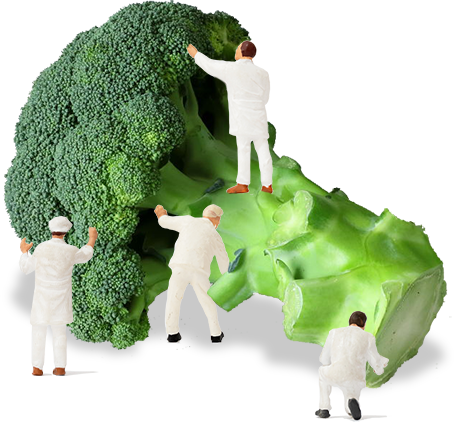
Basic Nutrition
The five macronutrients needed for the body are carbohydrates, fats, proteins, vitamins, and minerals. The body can be kept healthy by taking the required amount of nutrients in a balanced manner.These nutrients help to build the body, keep its condition, and provide a source of energy.
| Dietary intake reference |
Boy ( 3-5 y.o. ) | Girl ( 3-5 y.o. ) | Male ( 30-49 y.o. ) | Female ( 30-49 y.o. ) | Broccoli ( Florets 100g ) |
|---|---|---|---|---|---|
| Calories (kcal) | 1,300 | 1,250 | 2,700 | 2,050 | 37 |
| Protein (g) | 42.3 to 65.0 | 40.6 to 62.5 | 87.8 to 135.0 | 66.6 to 102.5 | 5.4 |
| Total Fat (g) | 28.9 to 43.3 | 27.8 to 41.7 | 60.0 to 90.0 | 45.6 to 68.3 | 0.6 |
| Total Carbohydrate | 162.5 to 211.3 | 156.3 to 203.1 | 337.5 to 438.8 | 256.3 to 333.1 | 6.6 |
| Dietary Fiber (g) | Over 8 | Over 8 | Over 21 | Over 18 | 5.1 |
| Potassium (mg) | Over 1,400 | Over 1,400 | Over 3,000 | Over 2,600 | 460 |
| Calcium (mg) | 600 | 550 | 750 | 650 | 50 |
| Magnesium (mg) | 100 | 100 | 370 | 290 | 29 |
| Phosphorus (mg) | 700 | 700 | 1000 | 800 | 110 |
| Iron (mg) | 5.5 | 5.5 | 7.5 | 10.5 (menstruating) 6.5 (Not menstruating) |
1.3 |
| Vitamin A(μgRAE) | 450 | 500 | 900 | 700 | 75 |
| Vitamin E (mg) (α only) | 4.0 | 4.0 | 6.0 | 5.5 | 3.0 |
| Vitamin K(μg) | 60 | 70 | 150 | 150 | 210 |
| Vitamin B₁ (mg) | 0.7 | 0.7 | 1.4 | 1.1 | 0.17 |
| Folic Acid(μg) | 110 | 110 | 240 | 240 | 220 |
| Vitamin C (mg) | 50 | 50 | 100 | 100 | 140 |
← Swipe →
- Dietary Intakes for Japanese people (2020) (excerpt)
- PALs (physical activity level) II (normal) for both genders.
References
-
- STANDARD TABLES OF FOOD COMPOSITION IN JAPAN - 2020 - (Eighth Revised Version), Ministry of Education, Culture, Sports, Science and Technology (MEXT)
- https://www.mext.go.jp/a_menu/syokuhinseibun/mext_01110.html
-
- The Dietary Reference Intakes for Japanese (2020), Ministry of Health, Labour and Welfare
- https://www.mhlw.go.jp/content/10904750/000586553.pdf
-
- eJIM, Ministry of Health, Labour and Welfare 『「統合医療」に係る情報発信等推進事業』
- https://www.ejim.ncgg.go.jp/public/index.html
-
- Toshihiko Sato, Tohoku Bunka Gakuen University, (2006) Stress Responses as modulators of the psychological functions related to learning and memory, CiNii
- https://cir.nii.ac.jp/crid/1050001337427030400
-
- Youichi Tachi, Yodosha (2016) Eiyoukagaku irasutoreiteddo dai3han (Illustrated of nutritional chemistry Basic Nutririon 3rd edition)
-
- KOSEKI Masamichi, NABETANI Hiroshi, Kenpakusha (2021), Tabemono to kenkou kaitei masuta shokuhingaku I (Food and health Revised Master Food Science I)
